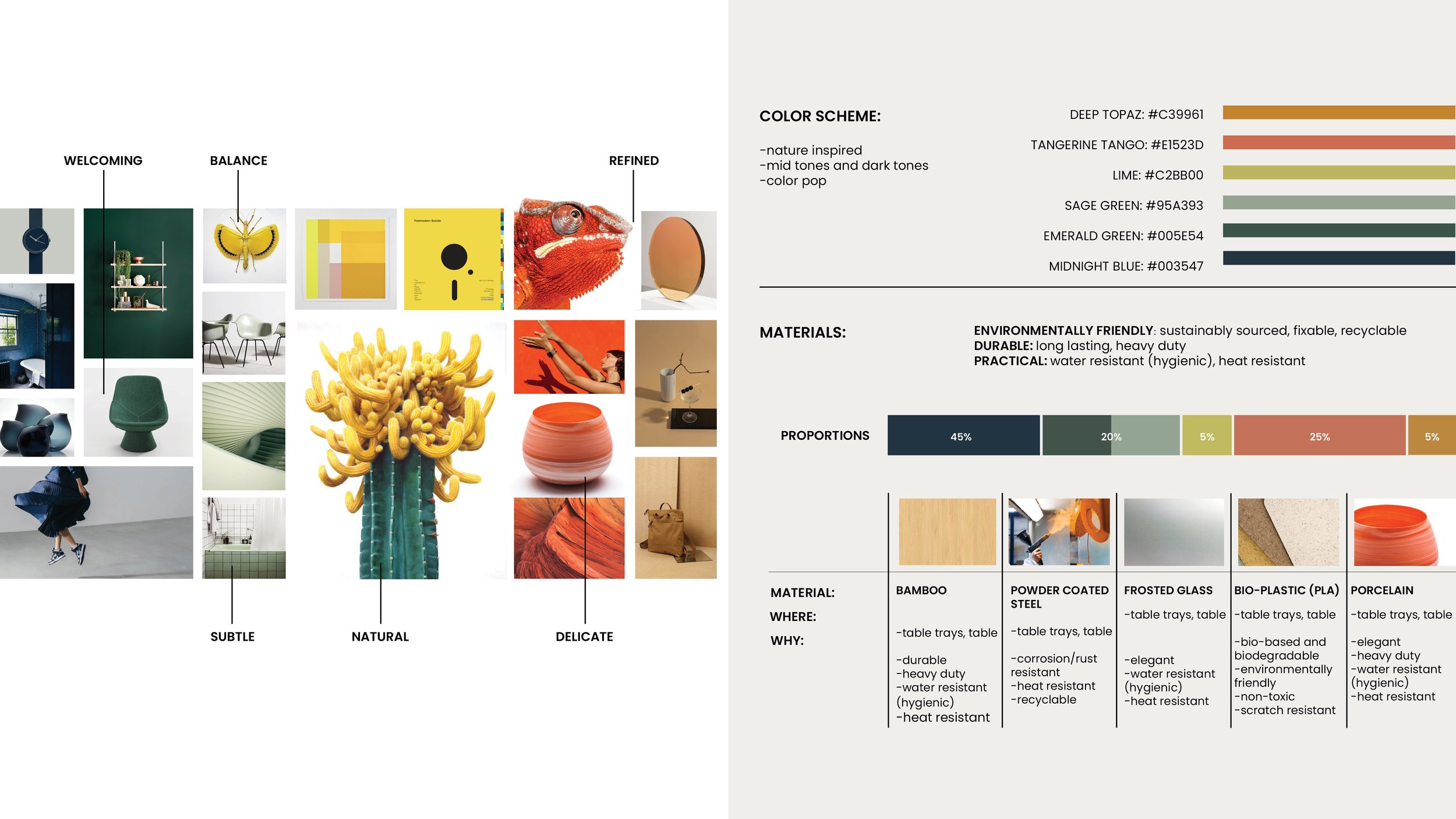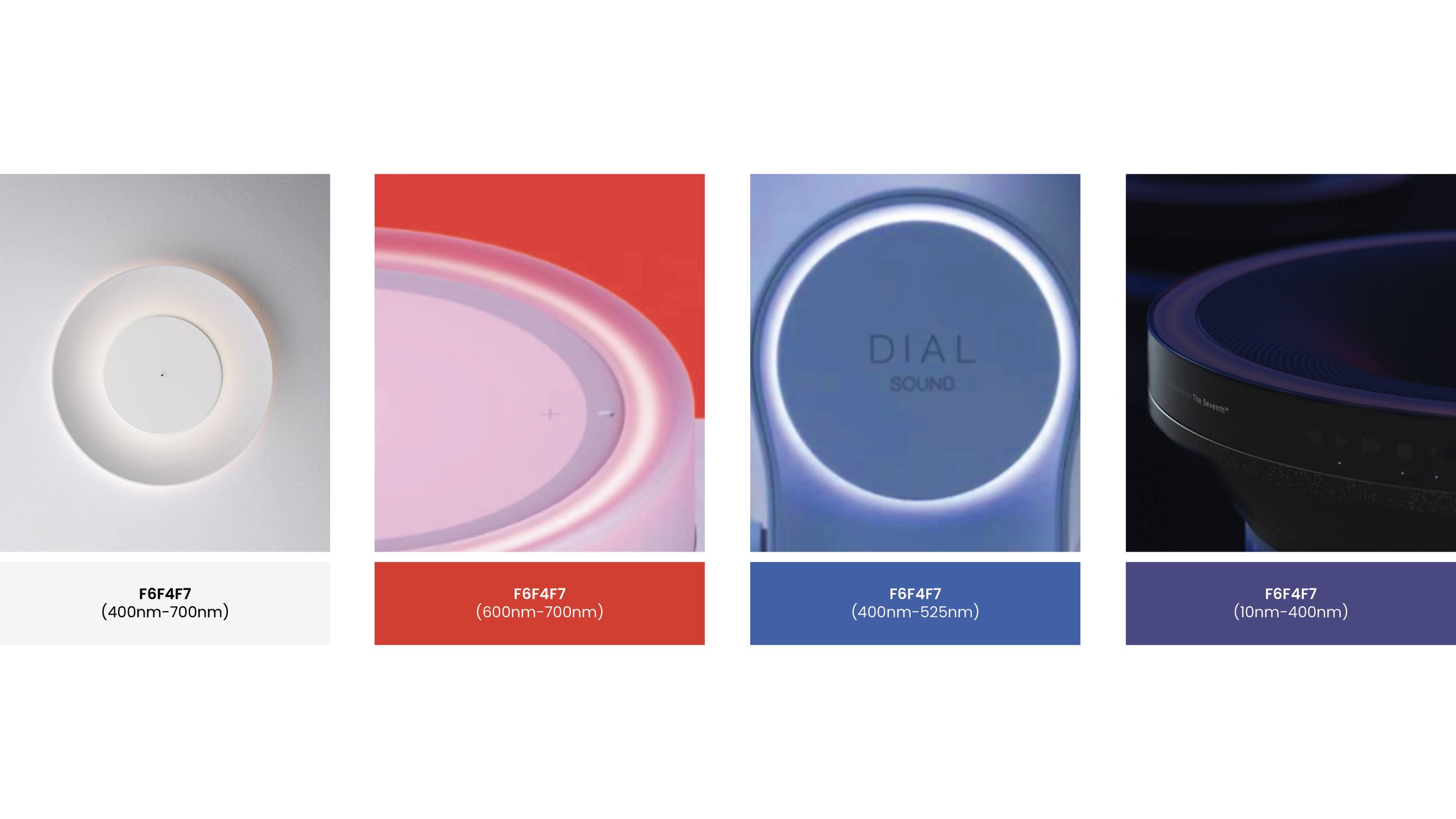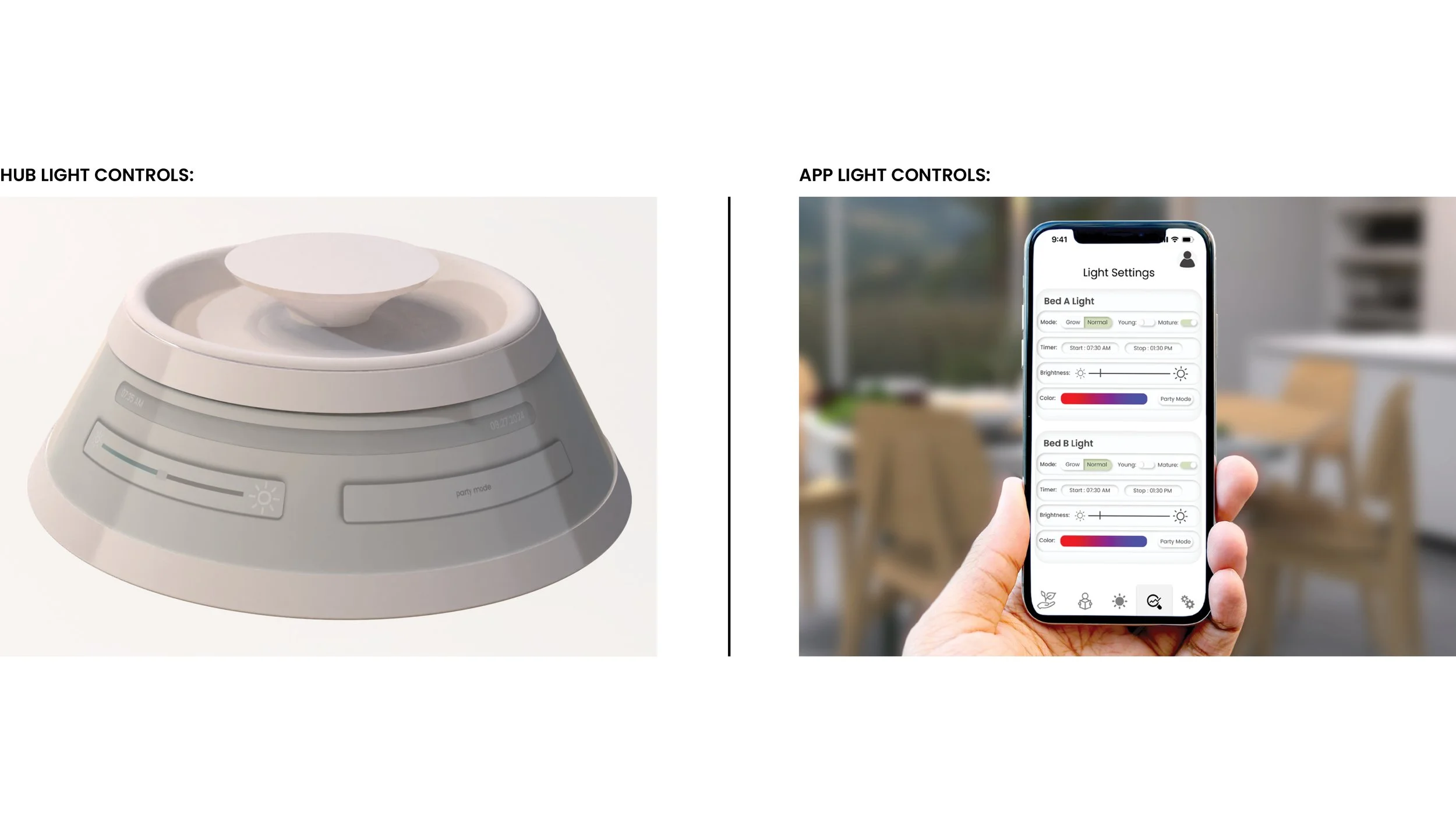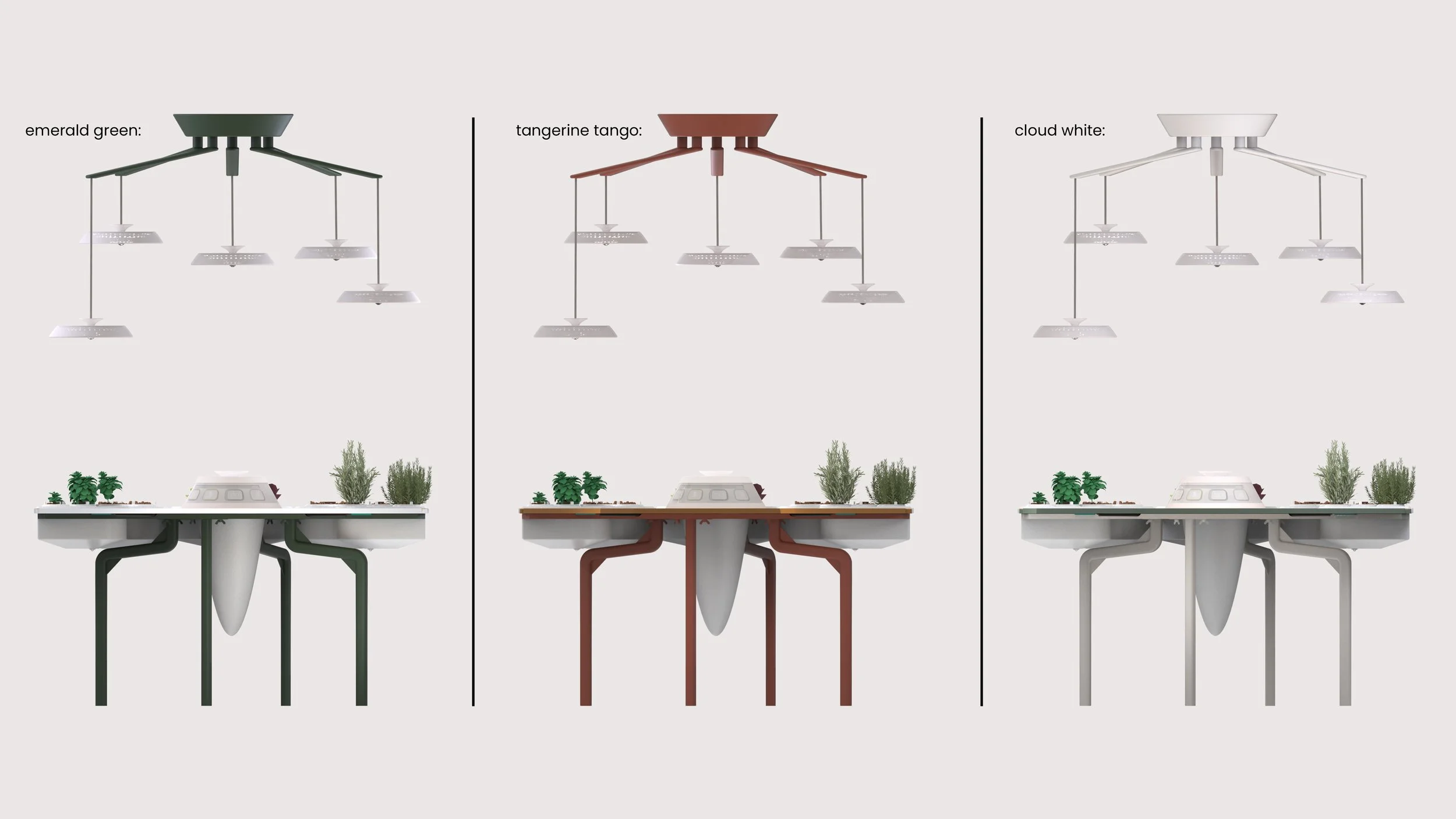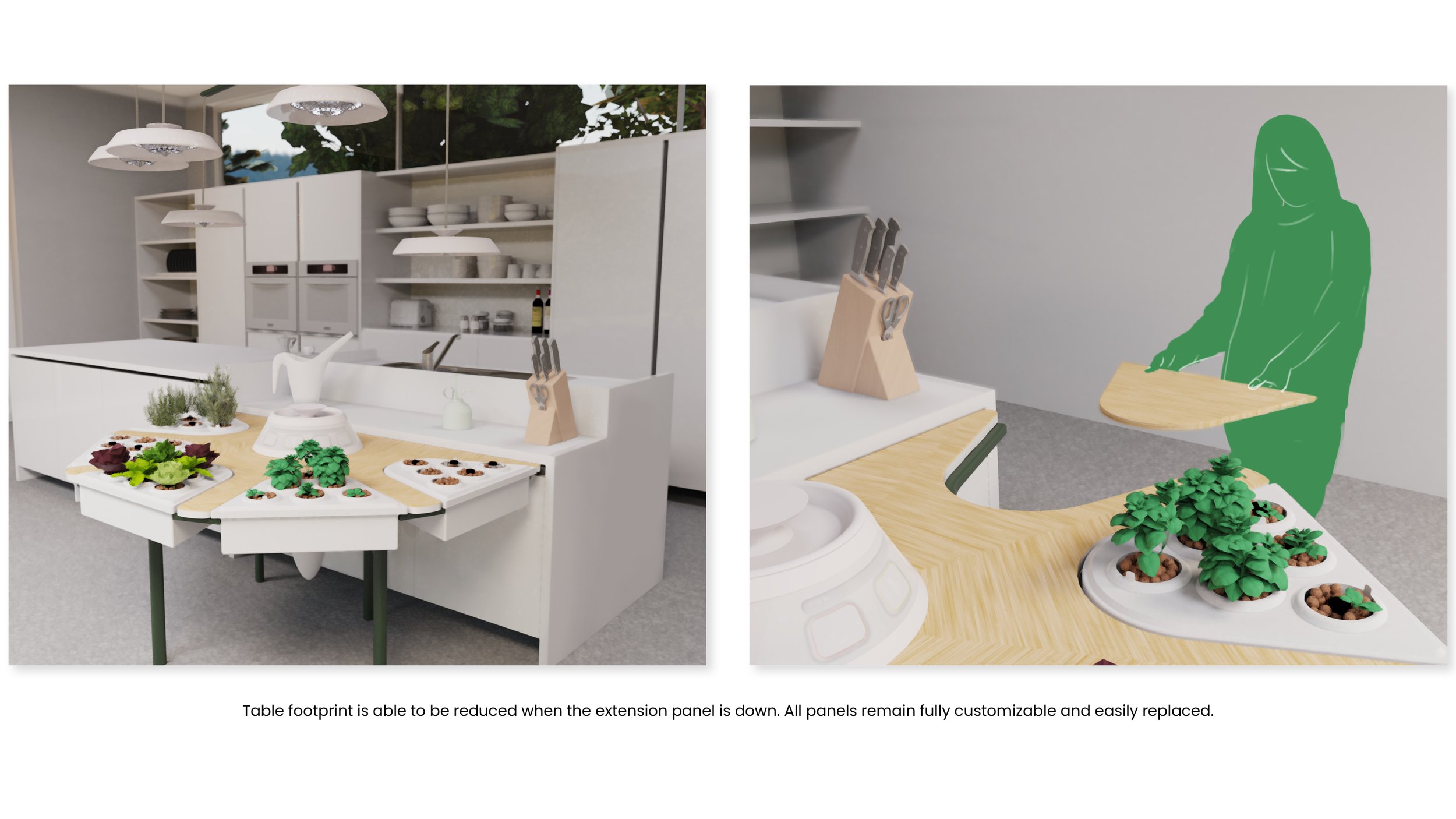gather
Collaborative Project with Megan Grafe + Hannah Weisburn
a smart hydroponics system integrated into a dining set.
our team
summary of research
summary of research
how did we get here?
emerging trends in sustainability ••
Expect sustainable products to become mandatory among consumers. More than any other generation, Gen Z is aware of climate change, loss of biodiversity, and the responsibility they must try and fix these issues. 54% of young adults think a company’s environmental and social efforts are very important when considering whether to purchase a product or service.
at home grow ••
During the COVID19 pandemic, more than 20 million Americans planted a vegetable garden for the first time. However, not all of these gardens were outdoors. Today, the range of at-home planter systems is vast. These systems allow for optimal plant growth indoors and are typically hydroponic system based or LED grow light based.
hydroponic basics
store visit •• •• ••
In order to get a broader understanding of what is on the market, we decided to visit Garden Grove Organics in Newport, Kentucky. Garden Grove Organics offers vast options in dealing with whatever set up you’re working on: hydroponics, soil, net pots, or media beds.
narrowing down the opportunity space
how might we improve upon current hydroponic systems and make them more meaningful to consumers?
top issues with current hydroponic solutions •• •• ••
in what ways can we use the advancement of smart technology in order to improve the user experience of hydroponic systems?
initial ideation
initial ideation
where could this go?
mindmap exercise •• •• ••
how might we spark connection with people + their food through the integration of hydroponics + technology?
envisioning where this could go •• •• ••
how might we spark connection with people + their food through the integration hydroponics + technology?
solution space
solution space
design goals •• •• ••
technology ••
What is out there and what could be incorporated into our design?
competitive analysis ••
What is out there and what could be incorporated into our design?
user analysis •• ••
Who are we designing for?
what are our values + who are the stakeholders? ••
validation and refinement
validation and refinement
form inspiration •• •• ••
concept development •• •• ••
what needs to be included in our system?
survey + interview analysis •• •• ••
In order to validate our hypothesis of the value of growing your own plants and the need for an easier method of doing so, we conducted a survey and a few interviews to understand consumer feedback and interest.
service blueprint •• ••
How does the system interaction work?
product architecture ••
Table, hub, and lights.
hub + app interface architecture •• ••
sketch refinement •• •• ••
In this sketch refinement phase, we focused on creating different aesthetic variations as well as incorporating our survey/interview feedback into out design. This process included refining the automated lights that are individually targeted towards each plant, as well as refining the shape of the hub, interface, and table form.
lo-fi prototyping •• •• ••
more sketch refinement •• •• ••
Focus on creating different aesthetics, narrowing down the mechanics, and using additional user feedback to add a prep counter to our design. The table can be flush against a wall or counter top if the user is more interested in using it as counter space rather than an eating space.
color + material guide | table •• •• ••
ui style guide •• ••
hub lighting guide ••
grow lights guide ••
final design
final design
introducing gather
app interface •• ••
hub interface •• ••
Final hub UI has access to a condensed version of water health, plant health, nutrient health, and light controls.
hub + app light controls
The hub and app work interchangeably. The hub has a simplified interface that alerts users when things are wrong- they then can check the app for more detailed information.
final CAD
close ups ••
technology details ••
components ••
cmf ••
storybook ••
feel free to reach out to see the full process book!


































